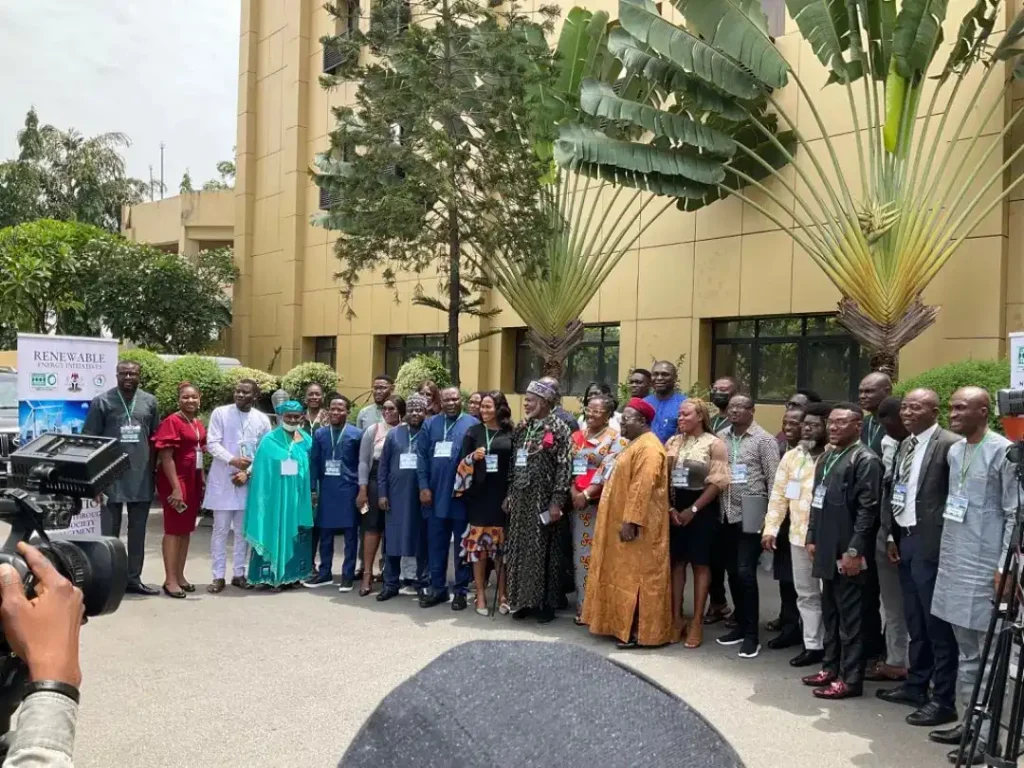Energy Poverty Hinders Clean Energy Access in Africa, ACSEA Pushes for Citizen-Led Renewable Energy Transition
At a workshop in Abuja on April 12, 2022, the Africa Coalition for Sustainable Energy Access (ACSEA) highlighted energy poverty as a primary barrier to clean energy adoption across Africa, particularly in Nigeria. The event, themed “Ensuring a people-centered energy transition in Africa through robust civil society engagements,” aimed to mobilize citizens to demand sustainable, eco-friendly energy solutions from the government. The initiative underscores the urgent need for a decentralized, inclusive energy system to address Nigeria’s reliance on environmentally harmful “dirty energy.”
Energy Poverty as a Barrier to Clean Energy
Dr. Godwin Uyi Ojo, ACSEA’s National Coordinator, emphasized that energy poverty—the lack of access to any form of energy, clean or dirty—severely limits clean energy adoption in sub-Saharan Africa. He noted that many Nigerian families, particularly in isolated areas, lack access to reliable energy, exacerbating socioeconomic challenges. Ojo advocated for renewable energy as a solution, citing its potential for decentralization to meet the needs of remote communities while maintaining environmental sustainability. “Renewable energy is the only system that can be decentralized and has a future,” he stated, stressing its cost-effectiveness and environmental benefits compared to fossil fuels, which incur significant social, health, and ecological costs when subsidies are considered.
Ojo also criticized the governance of “dirty energy,” describing it as inherently flawed and prone to inequitable access and distribution. He called for a democratized energy system that prioritizes citizen participation in decision-making to ensure policies meet the needs of current and future generations. This shift, he argued, would counter the narrative that fossil fuels are the only affordable energy option, a misconception that overlooks the long-term costs of oil pollution and environmental degradation.
Citizen Participation and Decentralized Energy Systems
Dr. Godwin Ojo, Executive Director of Environmental Rights Action (ERA), reinforced the need to address energy poverty through a decentralized energy system that empowers citizens. He warned against “energy colonialism,” where foreign renewable energy technologies are dumped in Africa without building local capacity. Ojo advocated for a citizen-led movement to challenge energy monopolies and promote off-grid and stand-alone systems. “We must put energy development in the hands of citizens through a decentralized, democratic system,” he said, emphasizing the ACSEA Nigeria platform’s role in fostering local expertise in renewable technologies.
The initiative seeks to hold the government accountable for implementing policies like the Solar Power Naija Project, which aims to provide solar energy to 5 million households. Ojo stressed that effective execution of such policies could drive sustainable energy access, particularly in underserved areas.
NAPTIN’s Role in Building Capacity
Ahmed Nagode, Director-General of the National Power Training Institute of Nigeria (NAPTIN), highlighted the importance of fostering a maintenance culture among citizens to sustain energy infrastructure. He noted that vandalism and neglect of costly infrastructure exacerbate Nigeria’s energy challenges. To address this, NAPTIN has trained 100 Nigerians in solar installation techniques, equipping them with skills to support the renewable energy sector. Nagode emphasized the need for skills development to create jobs and reduce unemployment, pledging NAPTIN’s support for ERA and ACSEA’s efforts to build capacity in clean energy technologies.
Nagode also underscored the shared responsibility of stakeholders to protect energy infrastructure, urging advocacy groups to promote civic responsibility alongside their campaigns for clean energy access.
A Call for a People-Centered Energy Transition
The ACSEA workshop reflects a growing movement to address Nigeria’s energy poverty, which affects over 85 million people without reliable electricity. By promoting renewable energy sources like solar, which leverages Nigeria’s abundant sunshine, and fostering citizen engagement, ACSEA aims to create a sustainable, inclusive energy future. The initiative challenges the dominance of fossil fuels, advocating for policies that prioritize affordability, accessibility, and env






